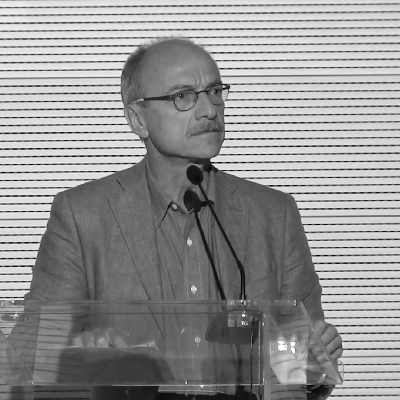Excellent at exploring philosophy and art, Athens was not able to find the same balance in its relationship with nature. Twenty-five centuries later, can we really consider that lesson learnt? Can we tackle the current crisis in the knowledge that we must take matter into account, since even the virtual world needs a screen and energy to function? And that the growing importance of financial activities in the economic system – the escape from reality – is wreaking havoc?
This issue focusses on a problem that looks rather technical. Even the words used by experts (i.e.: compliance schemes, that is programmes to involve manufacturers in the collection of their goods once they become waste) keeps the masses away. Yet, we are talking about something that we see every day. Something that has an impact on our wallets. Something affecting the quality of the air we breathe and of the water we drink. The problem is that this “something” is difficult to define because it is a double-faced entity. Sometimes it looks like a good: a resource, a raw material that feeds our industry. Sometimes it looks like waste: a burden to get rid of.
But problems arise if we consider this sequence in fixed and irreversible temporal order: a good that suddenly becomes waste creating problems of supply and disposal. But there must not necessarily be a before and an after. We can see matter as a cycle passing from one form to the other, from one function to another, from one object to another. Goods become waste, waste feeds a new production cycle that generates more waste which is transformed into other goods. Not ad infinitum, but for a long time.
There seems to be much debate about the circular economy, but its application is still limited. How could it be otherwise in a country where everyone talks about separate waste collection but few people take an interest in the destiny of these materials so laboriously and costly selected? In a country where what matters is the political benefit gained by brandishing an increase in organic waste, paper or plastic collection while no one cares about guaranteeing the basic conditions for the construction of treatment plants for such materials. In doing so, we run the risk of leaving the country, especially the South, at the mercy of gangs making money by selling off public health with illegal landfills and boycotting an advance waste management system.
Against all odds, in just a few years, public awareness campaigns, our laboratories’ research abilities and the brave actions of some entrepreneurs have made Italy a leader in the field of bioeconomy, boasting some very successful pilot experiments. Now we must keep up this excellence and feed it with the necessary matter. Matter that must not be taken away from other precious uses, such as food, but obtained by reducing wastage, finding ad hoc solutions for each area, creating jobs that cannot be delocalized and continuing to invest in research.
This is a challenge requiring advanced technology and system innovation. The debate on collective systems on this issue, published to coincide with The States General of the Green Economy and Ecomondo, is intended as a contribution in this direction. We explore this topic by tackling it both from a technical and a layman’s side in order to build a bridge between these two worlds. Italy has got a good hand, now it must play its cards well.
The 5th Edition of The States General of the Green Economy will take place on 3rd and 4th November 2015 at Ecomondo Rimini Fiera, www.statigenerali.org and www.ecomondo.com.



